The Resistance Before the #Resistance
A new exhibit at the Los Angeles Public Library celebrates the young men who refused to fight in the Vietnam War.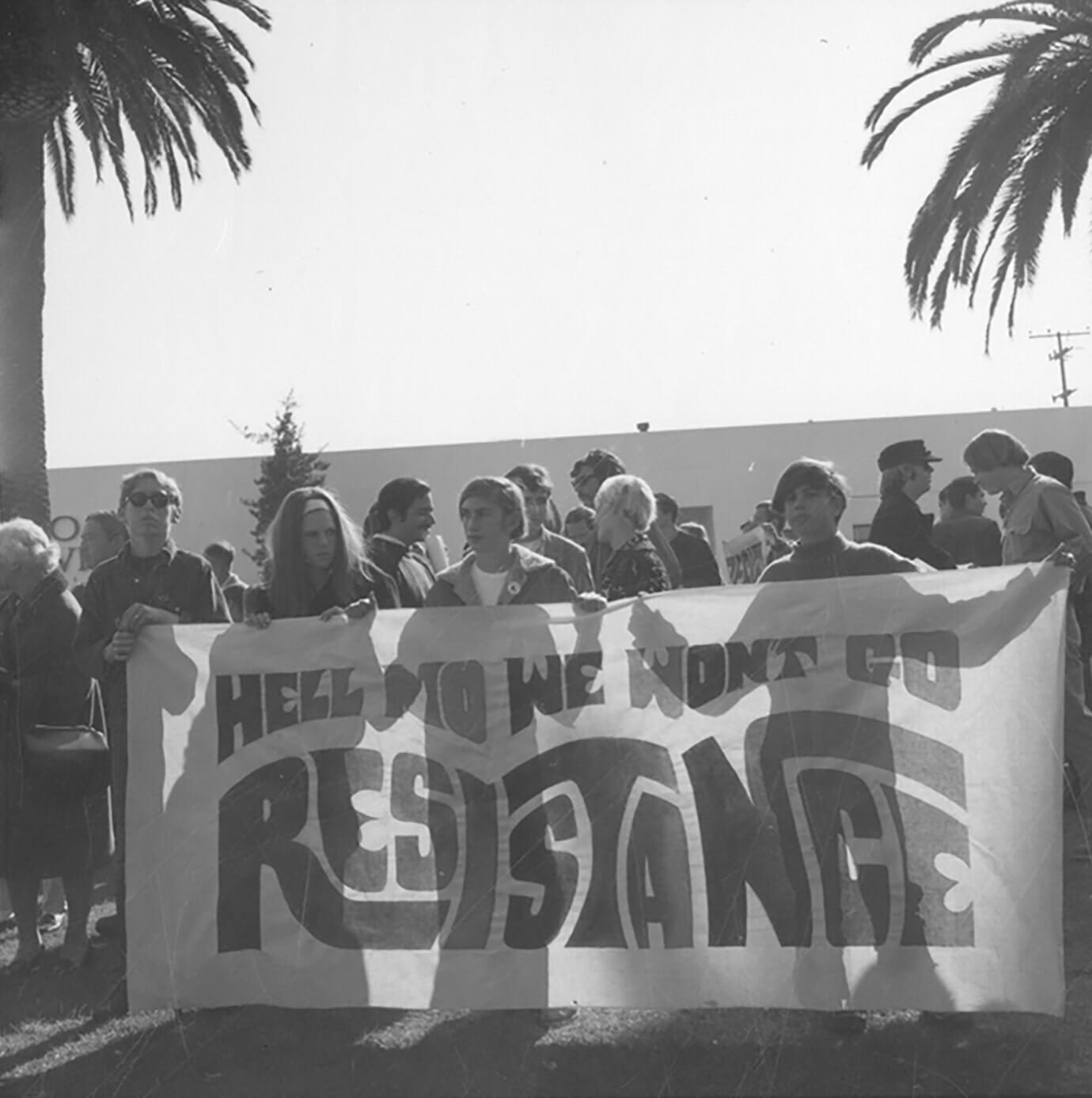 L.A. Resistance Collection, Los Angeles Public Library.
L.A. Resistance Collection, Los Angeles Public Library.
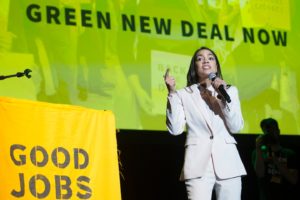 Photo Essay
The Resistance Before the #Resistance
Photo Essay
The Resistance Before the #Resistance
It was a watershed year in American history. In 1968, protests and marches erupted almost daily; riots broke out across the United States; the Fair Housing Act was signed into law; Richard Nixon was elected president; and the back-to-back assassinations of civil rights activist Martin Luther King Jr. and Democratic presidential hopeful Robert F. Kennedy threatened to tear the country apart. The Vietnam War, which had been simmering for more than a decade, suffered its highest body count on record.
Today, the U.S. military relies on a volunteer army to fight its forever wars. But in the 1960s, you could get a draft deferral only if you were married, had children, were a registered college student or had a medical condition that precluded you from service. The Resistance was a local organization based in Los Angeles whose mission was to stop the war though dedicated, nonviolent noncooperation with the federal Selective Service System. Members turned in their draft cards in protest, but their dissent came at a heavy price; some were fined up to $10,000 or sentenced up to five years in prison.
“We Won’t Go: the Los Angeles Resistance, Vietnam and the Draft,” an exhibit of The Resistance archives on display from June 22 to Aug. 19 at the Los Angeles Public Library’s Getty Gallery, explores these young men’s commitment to social justice. The collection features posters, leaflets and legal documents created by the Peace Press, along with newspaper clippings, draft cards, videos, and images by photographer Charles Brittin.
“Having the Resistance archives here [is] significant as they document their activities during an important time in our political history,” said Ani Boyadjian, research and special collections manager at the Central Library. “They were answering Martin Luther King Jr.’s call for a Vietnam summer by creating a movement of nonviolent draft resistance with the aim of ending the war.”
Bob Zaugh, one of the original members of the Resistance, graduated from Gardena High School in 1962 and promptly registered with the Selective Service. “The war in Vietnam wasn’t heating up yet, but I didn’t want to be drafted. So I took a 2S,” he said.
Zaugh enrolled at El Camino College, and like so many other students his age, enjoyed the security of a college deferment.
In the summer of 1967, the war intensified and riots broke out in Los Angeles. Concerned about the deadly conflict and an impending draft, the political science major from Torrance attended a speech on the UCLA campus. The speaker was David Harris, the student body president at Stanford University.
“Everything changed after hearing his electrifying speech,” said Zaugh. “That’s when I got in involved with The Resistance. I was given a deferment while poor people and people of color didn’t have that privilege.”
Zaugh dropped out of school and turned in his draft card. From 1967 to 1968, the Los Angeles Resistance held peaceful protests outside the Selective Service offices in Westwood, where busloads of young men were inducted into the military. Vietnam was not their father’s war.
In 1967, Zaugh began working for the Peace Press, a political collective backed by founder and UCLA graduate student Jerry Palmer. “The sentiment in the country at the time was overwhelmingly pro-war, which made us very unpopular,” said Zaugh. “We had to teach ourselves how to print because nobody else would print our literature.”
Booted by landlords unsympathetic to their cause, and hounded by the FBI and CIA, the Peace Press relocated several times over the course of its 20-year existence from 1967 to 1987.
The ultimate objective of the Resistance was not only to end the war but the draft itself. Draft card turn-ins were held twice in 1967 and 1968. “We also refused inductions and physicals,” said Zaugh. These acts ranged from felonies to federal offenses; resisters eventually had to appear in court, many without attorneys. One of Zaugh’s friends was given three years in prison at the Federal Correctional Institution in Lompoc, while another was subjected to solitary confinement.
Even Harris was indicted. Convicted of draft evasion, he served 15 months in federal prison in 1969. When Zaugh had his day in court, he decided to represent himself despite his hatred for public speaking. Luckily, he found an ally in federal Justice Harry Pregerson, a liberal former Marine and veteran of the battle of Okinawa in World War II. Said Zaugh, “He thought my argument was terrible, told me I was going to lose and had me acquitted.”
Zaugh said he and his fellow members of the Resistance felt it was their responsibility to let the public know what their government was doing in Vietnam. “We wanted people to pay attention to our foreign policy and what we could do about it,” he said.
Eventually, the powers that be realized the war was unwinnable.
“The Resistance was a very potent organization,” noted Zaugh. “The government did its best to keep us out of the public eye and keep stats on the number of men who were breaking the Selective Service laws under wraps.”
As many as 206,000 people were reported delinquent during the entire war period, according to the Antiwar and Radical History Project. Fewer than 9,000 out of 209,517 accused draft offenders were convicted.
Since the war’s conclusion, Zaugh has continued his involvement in social activism, peacefully protesting the Diablo Canyon Nuclear Power Plant in Avila Beach and Gary Tyler’s four-decade incarceration in Angola, La. Zaugh also spent 13 years working for “Simpsons” creator Matt Groening, a loyal Peace Press customer, at his Bongo Comics Group.
Your support is crucial…With an uncertain future and a new administration casting doubt on press freedoms, the danger is clear: The truth is at risk.
Now is the time to give. Your tax-deductible support allows us to dig deeper, delivering fearless investigative reporting and analysis that exposes what’s really happening — without compromise.
Stand with our courageous journalists. Donate today to protect a free press, uphold democracy and unearth untold stories.

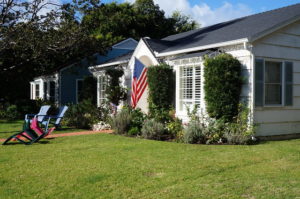
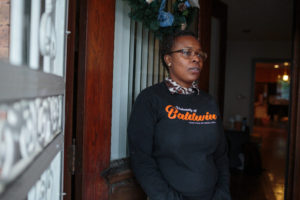
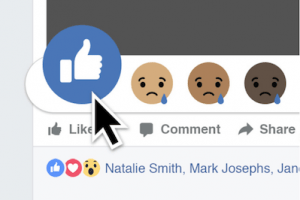
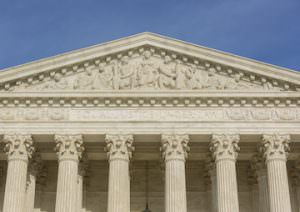
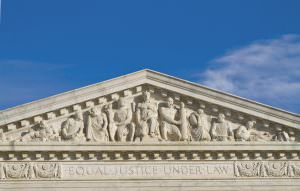


You need to be a supporter to comment.
There are currently no responses to this article.
Be the first to respond.